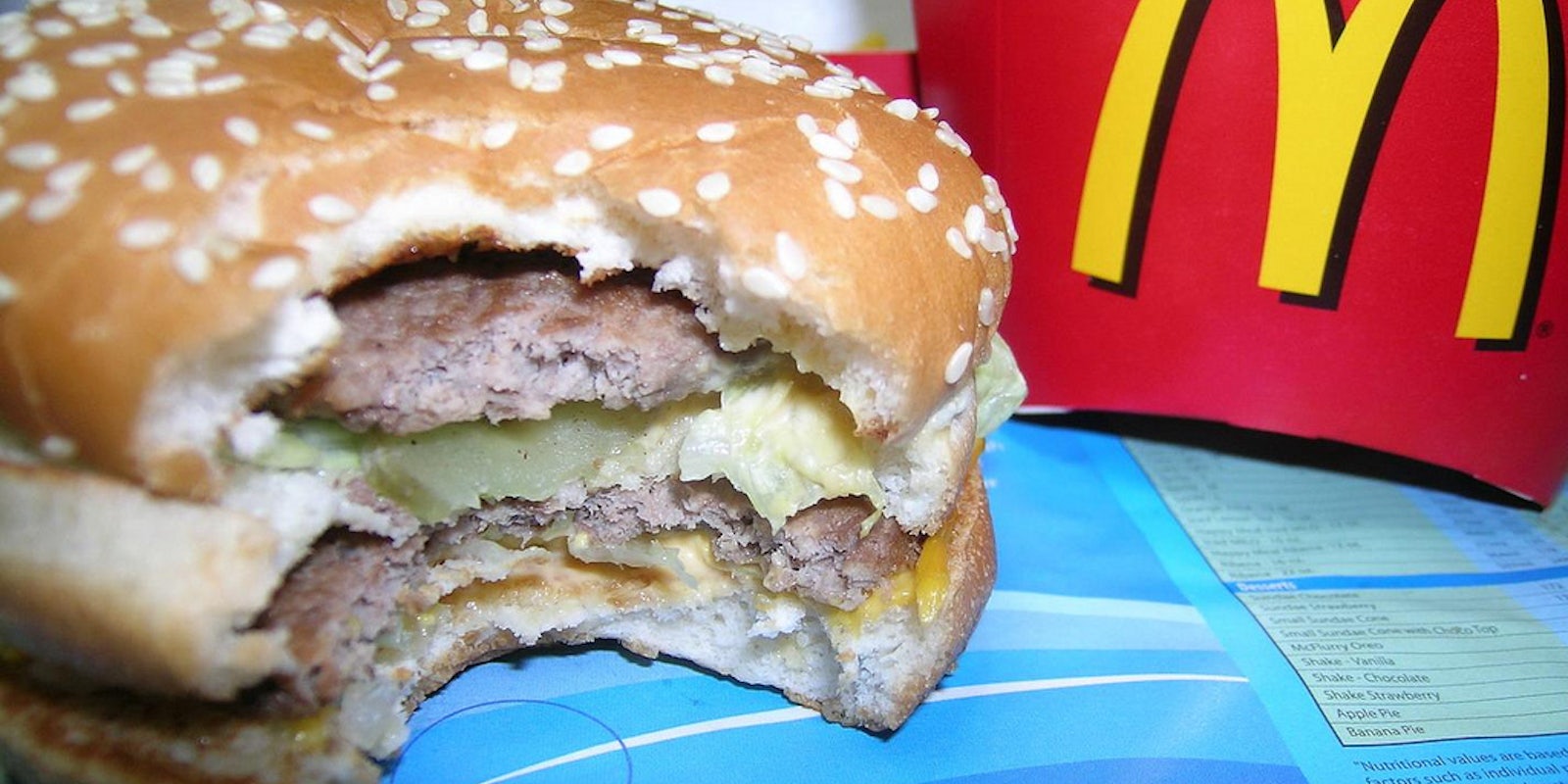If you enjoy eating pork patties shaped into something they’re not or attempting to gorge yourself on 100 hamburgers in one sitting, McDonald’s might be your favorite restaurant. And if that’s the case, there are a couple of things you should know.
For one, you should never watch how the company produces its chicken nuggets. Secondly, you should never think about how long it takes for the typical McDonald’s meal to decompose. The answer to both questions might just cause you to skip your next visit to the fast-food spot.
Jennifer Lovdahl, owner and operator of Balanced Health Chiropractic in Anchorage, Alaska, wrote on Facebook that she went to a McDonald’s in 2010, bought a Happy Meal, and then just sort of waited around for the next six years. Here was the result.
Her photos seem to make this a believable experiment, and that’s probably one reason the post has been shared more than 250,000 times. The receipt, grease and all, is from Jan. 8, 2010, and the price of a Happy Meal these days is $3.29 rather than the $2.10 Lovdahl apparently spent six years ago. It also makes sense that Alvin and the Chipmunks: The Squeakquel is featured on the box, since that movie was released on Dec. 23, 2009.
Of course, it’s impossible to know for sure whether the food photographed was actually bought six years ago and then stored for the last 2,222 days or so, so Snopes rates Lovdahl’s claim as mostly false.
Either way, we should know by now that there are plenty of preservatives in the food served by McDonald’s. But the company also has addressed the question of why its food doesn’t rot in an online Q&A:
“Actually, it can [rot]. Food needs moisture in the air for mold to form. Without it, food will simply dry out—sort of like bread left out on a counter overnight to make croutons for stuffing. You might have seen experiments which seem to show no decomposition in our food. Most likely, this is because the food has dehydrated before any visible deterioration could occur.”
So, really, the photos, assuming they’re real, shouldn’t surprise anybody. Others have tried the same experiment, with similar results, and as Snopes writes:
Most claims about McDonald’s food failing to decompose were presented in the context of individuals’ having purchased food items specifically to evidence the phenomenon, but rarely (if ever) did such claims provide much information about the conditions under which the experiments were conducted. Moreover, ever fewer of them included one or more “control” samples of items purchased at other outlets or made at home to rule out factors such as environmental or storage conditions as factors. Since most experiments involved significant passages of time and lacked control specimens, their probative value was significantly diminished.
In any case, going to McDonald’s on a regular basis isn’t healthy for your body. And watching the livestream of Iceland’s last-ever McDonald’s meal—which has yet to decompose at all, really—is maybe a better way to spend your lunch hour.
Photo via Big Mac_60/Flickr (CC BY SA 2.0)


